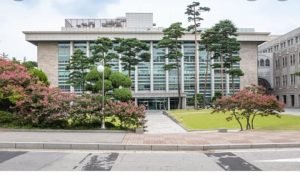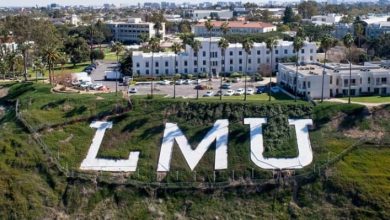Korean Universities for International Students

South Korea has deviated significantly from its neighbor since its separation from North Korea in 1948, evolving into an internationally renowned Asian powerhouse in the sectors of technology, education, and tourism, to name a few of its strengths. This lovely country, which embraces both tradition and modernity, has a lot to offer international students, and its capital city, Seoul, is now listed among the top ten student cities in the world. Before we talk about list of best Korean Universities for International Students, let’s discuss the admission process and tuition fees.
South Korea’s expansion into the world’s 11th largest economy and Asia’s fourth largest economy has been fueled by investments in education and research. The country, along with Hong Kong, Singapore, and Taiwan, is renowned as one of the four ‘Asian Tiger’ economies because of its investment and growth in innovation and technology.
In 2017, more than 123,000 international students (more than half of whom were from China) studied in South Korea, and the government has set its sights even higher, aiming for 200,000 international students by 2023. As part of this ongoing focus on internationalization, several South Korean universities, including Yonsei University, are opening new international campuses to meet growing demand, while four universities, including the State University of New York, have opened branch campuses at the Incheon Global Campus (IGC) (SUNY).
Applying to South Korean universities
The admissions process varies by school, but in general, you can apply directly to your desired university via mail or the internet. Keep in mind that the South Korean academic year starts in March, but many schools accept new students twice a year, in March and September. March application dates are usually set between September and November, while September application deadlines are usually set between May and June. In South Korea, most universities have only two terms: a summer break from July to August and a winter break from December to February.
Despite the fact that knowing Korean is useful, approximately 30% of courses in South Korean universities are taught in English. This, combined with the fact that English competence is increasing across the country, helps overseas students overcome the language barrier. A willingness to acquire the fundamentals of the Korean language, on the other hand, will undoubtedly be beneficial, opening the way for a more complete integration into South Korean society and culture. Foreign students must demonstrate their competency in the language in which their course will be taught in any scenario.
Funding and fees
One of the advantages of studying in South Korea is that tuition fees are the same for both domestic and international students, as part of a government strategy to attract more international students. Depending on the subject and university, these fees will vary.
A public university undergraduate course costs roughly $4,350 per semester (with humanities subjects at the lower end and medicine at the top). Fees at a private institution in South Korea are projected to be around $5,800 per semester. The average annual tuition rate for undergraduate students at Seoul’s 16 internationally ranked universities is US$6,500.
Remember that each school year has two semesters, and South Korean undergraduate programs normally run four years to compute the overall cost (or six years for subjects like medicine and dentistry).
Individual colleges provide scholarships to international students that cover anything from 30% to 100% of tuition costs. A variety of government scholarships are also available, some of which may cover flight travel and living expenses. The Global Korea Scholarship is one such government program (GKS)
Related Post:Top 4 Universities In Montreal, Canada
Best Colleges in South Korea for International Students
Seoul National University is a public university in Seoul, South Korea
Seoul National University (SNU) is a public research university in Seoul, South Korea. Both the Times Higher Education World University Rankings and the Shanghai Rankings rank it as the best university in South Korea. It’s also the ninth greatest in Asia and the 64th best worldwide.
There are 15 colleges at SNU, with 83 undergraduate programs. There are additional 12 graduate institutions that provide 99 post-graduate degrees. Admission to SNU, South Korea’s most prestigious university, can be extremely tough. Performance tests are required in Fine Arts and Physical Education programs, in addition to the standard requirements.
Sungkyunkwan University is located in Seoul, South Korea (SKKU)
SKKU is a private university that has been in existence since 1398. It offered Confucian canon and Chinese classics studies as the Joseon Dynasty’s highest educational institution. It is not only East Asia’s oldest university, but it is also considered one of the greatest in the region.
SKKU has campuses in Suwon (Humanities & Social Science) and central Seoul (Humanities & Social Science) (Natural Sciences).
SKKU offers special programs such as the International Summer Semester and the Winter International Student Experience because of its large number of international students. It also provides a Global MBA, which is the country’s first English-taught MBA program. Sungkyunkwan University has a large number of international students, which is why we’ve listed it as one of the finest Korean universities for international students.
Korea Advanced Institute of Science and Technology (KAIST) is a research institute in Korea
The Korea Advanced Institute of Science and Technology (KAIST) was founded in 1971 as the country’s first research-oriented science and engineering institution. Frederick Terman (Stanford University) and Chung Geum-mo (Daejeon University) devised the academic scheme (Polytechnic Institution of Brooklyn).
Natural Sciences, Life Science & Bioengineering, Engineering, Liberal Arts & Convergence Science, and Business are all represented at KAIST.
Overall grades, math/science grades, recommendation letters, personal statements, study plans, and other relevant data are used by KAIST to determine competitive admission. Despite this, overseas candidates had a nearly same acceptance rate of 13.2 percent compared to 14.9 percent for locals.
Yonsei University is located in Seoul, South Korea.
Yonsei University is the Y in the famous SKY institutions of South Korea. While it dates back to 1885, it was only formally established in 1957 when Yonhi College and the Severance Union Medical College merged.
Undergraduate programs in Liberal Arts, Commerce, Business, Engineering, Life Science, Theology, Social Science, Law, Music, Human Ecology, Education, Medicine, Dentistry, Nursing, and Pharmacy are available at Korea’s premier institution for overseas students.
Yonsei University also offers post-graduate degrees in theology, international studies, communication, social welfare, business administration, education, public administration, engineering, journalism, law, and economics, to name a few. The admission rate to Yonsei University is a little under 5%, similar to that of many of South Korea’s prestigious universities.
Korea University is a public university in Korea.
Korea University is a private university in Seoul, South Korea, that is regarded among the best in the country. It is the K in the SKY – the abbreviation given to three of the country’s most distinguished universities – and was founded in 1905. It was the country’s first university to provide law, journalism, and economics studies, making it a true educational pioneer.
Law, Business, Liberal Arts, Life Sciences & Biotechnology, Political Science & Economics, Science, Engineering, Medicine, Education, Nursing, Informatics, Health Science, Art & Design, International Studies, Media & Communication, Mechatronics, and Interdisciplinary Studies are among the 17 colleges and schools at Korea University. Korea University has an admission rate of little over 5%, making it a very elite institution.
Related Post:List Of Universities In Melbourne, Australia
Pohang University of Science and Technology is a university in Pohang, South Korea.
POSTECH, a private research university that specializes in science and technology courses, is next on our list of top Korean universities for overseas students. Despite the fact that it was only founded in 1986, Times Higher Education named it the best university under 50. (2012 to 2014).
Admission at POSTECH, like most South Korean universities, is extremely competitive. However, the university has been able to expand its international graduate student pool by offering full-tuition fellowships as part of its recruitment efforts. During the first semester, all overseas graduate students are eligible for a $1,500 one-time settling award.
Ulsan National Institute of Science and Technology is a research institute in Ulsan, South Korea.
UNIST is one of four research institutes devoted to science and technology. It was established in 2007 to meet the growing need for higher education in Ulsan, the industrial hub of South Korea.
Despite its youth, UNIST is widely regarded as one of the greatest universities in the country. It was already ranked in the World University Rankings in the 201-250 category ten years after it opened. It is currently ranked as the world’s 20th greatest young university. Undergraduate schools of the university specialize in a variety of engineering disciplines, as well as Life Science, Natural Science, and Business Administration. Graduate programs in Creative Design Engineering, Technology & Innovation Management, and Interdisciplinary Management are also available.
Kyung Hee University is a private university in Seoul, South Korea.
Kyung Hee University was established in 1949 as a private educational institution. It includes extensive campuses in Seoul and Suwon, and is regarded as one of Korea’s best institutions for overseas students.
Humanities, Law, Politics, Management, Medicine, Dentistry, Pharmacy, Nursing, Music, Fine Arts, Dance, Engineering, International Studies, Foreign Language, and Physical Education are only a few of the areas covered by its undergraduate colleges.
It also offers 16 graduate schools with master’s and doctoral programs.
Sejong University is located in Seoul, South Korea.
Sejong University is a private university that specializes in tourism, dancing, and animation. It was named after Sejong the Great, the Joseon King who invented the Hangul alphabet, and was formed in 1947.
Foreign students are welcome to apply to any of the school’s nine colleges. Liberal Arts, Social Science, Business Administration, Hospitality Management, Natural Science, Life Science, Electronics & Information Engineering, Engineering, and Arts & Physical Education are the colleges that make up this group.
Graduate courses in Business, Public Policy, Education, Tourism, Industry, and Interdisciplinary Arts are also available at the Seoul-based university.
Hanyang University is located in Hanyang, South Korea.
Hanyang University, a private college named after the former Joseon capital, brings our ranking of the greatest institutions in Korea to a close. It has campuses in Seoul and Ansan, and was founded in 1939. (ERICA).
Hanyang is a specialist in Engineering, as well as other related fields. Aside from that, the university’s Seoul campus provides courses in medicine, humanities, policy, economics, business, education, music, performing arts, music, nursing, and international studies.
On the other hand, the ERICA Campus offers programs in Engineering, Pharmacy, Science, Language, Communication, Business, Design, Sports & Arts, and Advertising.
Hanyang also has a number of foreign projects, such as the Global G2 (Chinese-English) scheme and the Global 3.0 Project brings the World together.
Related Post:How To Study Abroad In Korea
We hope this article: Korean Universities for International Students will help you make an informed decision.









